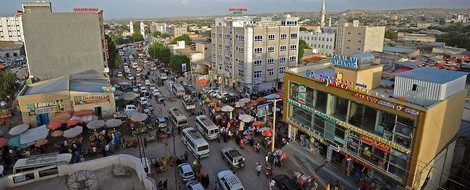Your podcast discovery platform
Curious minds select the most fascinating podcasts from around the world. Discover hand-piqd audio recommendations on your favorite topics.

piqer for: Globalization and politics Climate and Environment Technology and society Boom and bust
Cristina is a Spanish journalist based in London, she holds master’s degree in Journalism, Media and Globalisation at City University London and Aarhus University (Denmark). She has a keen interest in sustainable development and human rights and she curates -mostly- stories related to the Sustainable Development Goals. She has previous worked for United Nations and now collaborates with various publications such as El País, Chatham House, Huffington Post, Equal Times or eldiario.es.
Somaliland: When A Country Is Not A Nation
When you are in Somaliland, there is never any question that you are in a real country. After all, the place has all the trappings of countryhood. When I arrived at the airport, a customs officer in a Somaliland uniform checked my Somaliland visa, issued by the Somaliland consulate in Washington, DC (...) But, according to the US Department of State, the United Nations, the African Union and every other government on Earth, I was not in Somaliland, a poor but stable and mostly functional country on the Horn of Africa. I was in Somalia.
Somaliland exists. But it is a unique case, even among unrecognized states. Unlike Taiwan, it is not handcuffed to a powerful and more stable country but in constant conflict with one instead. Unlike Palestine, its cause does not attract any media coverage or support from the public opinion.
Despite the fact that Somaliland is a relatively stable country with no endemic violence, it has a bad image abroad, based on ignorance or even worse, indifference. This is well explained in this text: “Anything that starts with ‘Somali’, no matter how it ends, is a red flag for a lot of people.” The country’s economy relies mostly on remittances (there are one million members of its diaspora living mostly in the UK, the US and Scandinavia), but this is a finite resource, and the country is thus looking for foreign investment.
In this regard, the piece poses a controversial thought: even though Somaliland has been waiting 25 years for recognition, maybe it would be better off without it.
Looking at the decades of support given by the US to dictators such as Mobutu Sese Seko, or considering the destabilising role of western oil companies in countries such as Nigeria, there’s a case to be made that if that’s what engagement with the outside world means for fragile African states, maybe Somaliland has been better off without it.
This feature, despite its lenght, will keep you hungry for more. You will find yourself diving into the matter afterwards. That’s the magic of long-form journalism.
